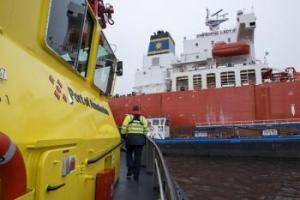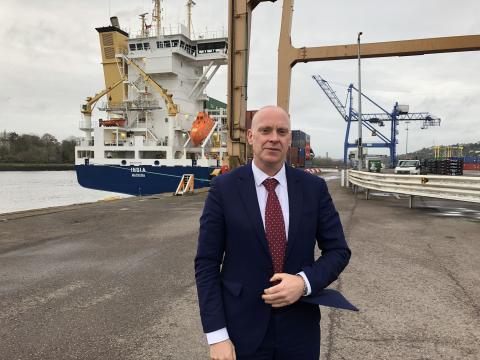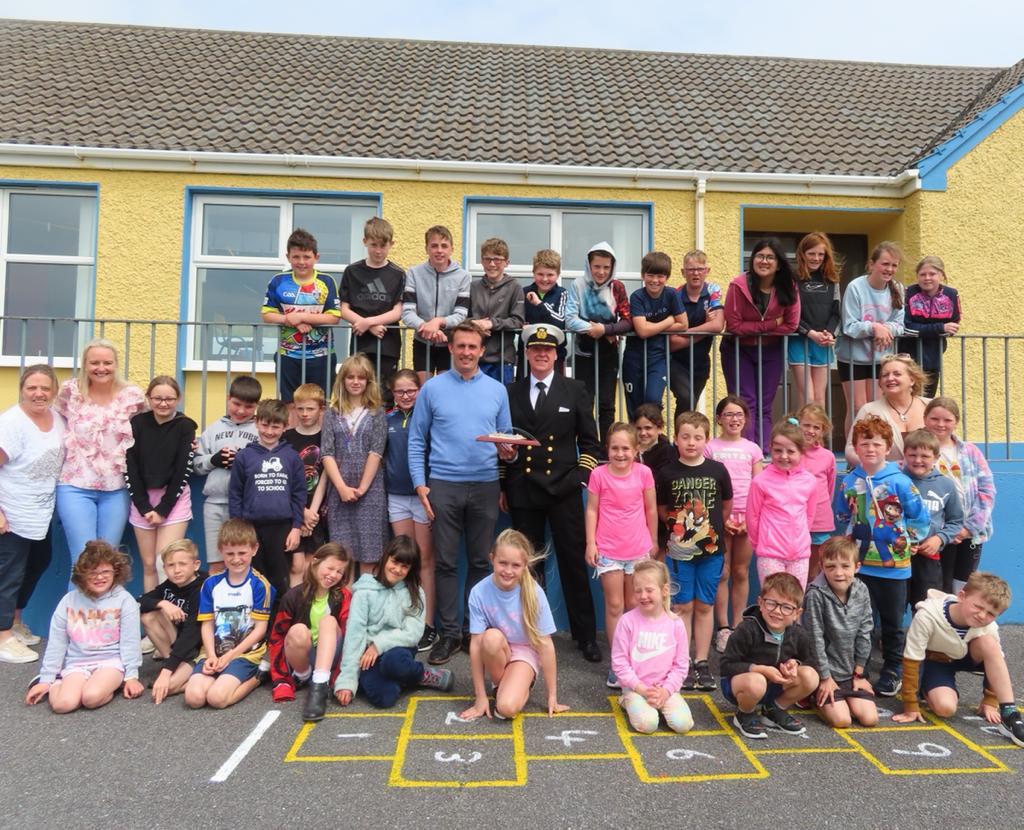Harbour Master
Harbour Masters
Worldwide there are approximately 3,000 merchant ports and the work of the Harbour Master can vary widely from country to country and from port to port even within the same country.


“My parents knew that if I went fishing, I’d not experience much of the world. It’s a way of life and you have to give everything to it. You don’t get many days of annual leave a year and must work to the weather as they say. They said, ‘If you want to go down that road, that’s fine, but go off and get some qualifications first’. After I’d finished school, they encouraged me to do Nautical Science – the first step towards a cadetship in Ireland.”
Not gone fishing
During his cadetship, Paul worked with OOCL in the Far East and North Atlantic and once qualified, he spent a few years offshore, working on tugs and other vessels.
“When I finished, my intention was always to go back and go fishing, but I was enjoying what I was doing,” he says.
On his return to Ireland, therefore, Paul took a job with Irish Ferries, first as a Training Officer, then as a Relief Master. At just 27 years of age, he’d covered a lot of ground in a short space of time. Eventually, a pilot position became available in the Port of Cork – a prized role.
“I did this for three years. This was unusual; usually if you land a pilot’s position, you keep it for life. But a competition opened up for Deputy Harbour Master in the port, so I applied and was lucky enough to get the role.”
First contact
It was in this role, in 2012, that Paul first encountered the IHMA.
“My predecessor as Harbour Master in Cork, Pat Farnan, was a founding member of the IHMA. I developed a strong interest and went to a number of meetings around Europe when Pat was unable to attend. I found myself missing a council meeting one day and the next day I discovered I was on the council!”
“I always found the association a valuable form of collaboration and discussion. Back then, most of the members were older than me, but that didn’t matter; there was a feeling of ‘if you’re a Harbour Master, you’re a Harbour Master’. It didn’t matter what age you were, or what gender, it’s the profession you’re supporting,” he explains.
Any storm in a port
Such support, he says, is of vital importance, given the often solitary nature of the Harbour Master’s role.

“Many Harbour Masters draw the parallel of a Captain on a ship. In a lot of cases, the final decision will rest at your door. You’ll make your decisions based on the information you have, and with the best intentions of your port at heart, but if something goes wrong, you’ll be called out for it.
“You don’t have two or three Harbour Masters in a port, normally only one or a Chief Harbour Master in large ports with bigger teams. Therefore, a global network, and the opportunity to reach out to people in similar positions is very useful. You have access to colleagues experiencing the same challenges and the same pressure when making decisions. There’s a good chance that the situation you are facing will have happened to someone else in the past. The experience of other Harbour Masters gives you the insight to deal with a very diverse range of issues in a port and stops you from making fundamental mistakes. It gives a lot of confidence in tackling challenges.”
Succession
Given the amount of value he clearly places on the association, it’s perhaps unsurprising that Paul went on to become President of the IHMA. He didn’t, however, have the intention to do so initially.
“I didn’t have the ambition to become President,” he states. “A lot of founding members were coming up to retirement age, so that created the opportunity. I’d been on the Executive Council for several years and knew all the members and had their support. I also got a lot of support from the Port of Cork CEO & team– I couldn’t have done it without them.”
Paul believes that the role of President includes working towards the success of the organisation, not just today, but for the future. With that in mind, he has developed a vision for how he would like to leave the association when the time comes to hand over the reins to a successor.
“IHMA came about when a group of like-minded Harbour Masters who understood the value of shared knowledge and experience came together to support one another. The result was a global network, not just of colleagues, but of friends.
“There’s a sense at the present time that we are entering a new generation. A number of founding members have retired, and their successors are now in position. Harbour Masters don’t tend to move on from their roles very quickly. One of the legacies I would like to leave, therefore, is a succession of Harbour Masters who have become both colleagues and friends for the coming years.”
Reaching out
One way he has gone about this has been to implement a broader approach to communications, both internally and externally, to promote the association and what it is doing. This includes increased activity on social media and the trade press, engaging with members and potential members around the world.
“The idea is, when Harbour Masters step into a room together, for example in Tangier in 2024, they will know each other and the ports they work in. It makes collaboration easier.”
He believes this focus on good communication can be of benefit, not only to the Harbour Masters in the association, but also to the Commercial Membership.
“Ports cannot work without good service industry support, whether it’s technology, equipment, expertise or advice. IHMA has done a good job of maintaining a network of commercial members. It doesn’t matter where the port is, the number of suppliers in our industry is not huge and we frequently end up working with the same suppliers. A lot of the value lies in understanding what the supplier can bring to the port and the port needs from the supplier, shared experiences can assist in making sound decisions.”
Expert practitioners in action
Another legacy Paul wants to ensure is the continued relationships that the IHMA has with industry bodies such as the IALA, IAPH and IMO, especially as the industry undergoes the changes that it is currently faced with.
“IHMA is very well regarded as a not for profit organisation which can contribute to topics such as safety and sustainability. IHMA has within its membership expert practitioners who understand what implications proposed legislation has for a port. The expertise of a Harbour Master is taken as a valuable contribution for forming guidelines and regulations. After all, it will be down to the Harbour Master and their teams to manage things when they come into force.”
Next gen network of global inclusivity
Paul is also keen to safeguard the association’s approach to inclusivity, seeing this as a vehicle for increased relevance internationally in the future.
“The IHMA has always been a very inclusive organisation and we want to make sure it continues on this track. The addition of the African Harbour Masters Committee in 2021 was fantastic. Recently, we had the first member from Vietnam joining and more new members from South America, where membership is currently underrepresented.”
Paul concludes, “These are all positive steps towards bringing the next generation of Harbour Masters together in a structure that can support them in their roles. We need a level of engagement from all members that will get the network moving and I think we have that.”

Founded in 2017, MarineLabs delivers high-resolution, real-time, and historical wind, wave, and weather data, as well as hyper-local 10-day forecasting, from a growing network of cloud-connected, rugged sensor nodes.
The International Harbour Masters Association (IHMA) and the Port of Rotterdam Authority are pleased to announce the 15th International Harbour Masters Association Congress, to be held from 09–12 June 2026 at Theater Zuidplein in Rotterdam.